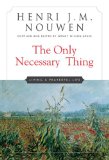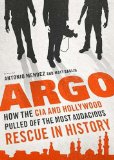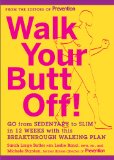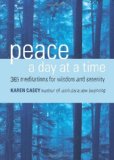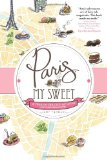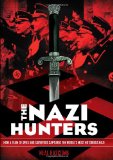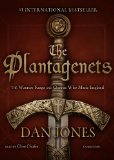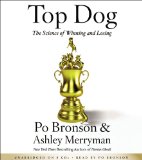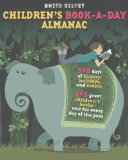Review of The Only Necessary Thing, by Henri J. M. Nouwen
Living a Prayerful Life
by Henri J. M. Nouwen
compiled and edited by Wendy Wilson Greer
Crossroad Publishing Company, New York, 1999. 224 pages.
Starred Review
Here is an excellent choice for reading small bits daily as a devotional book. They are sections taken from the body of work by Henri Nouwen, compiling his teaching on prayer.
Here’s his “Invitation” at the front of the book:
The invitation to a life of prayer is the invitation to live in the midst of this world without being caught in the net of wounds and needs. The word “prayer” stands for a radical interruption of the vicious chain of interlocking dependencies leading to violence and war and for an entering into a totally new dwelling place. It points to a new way of speaking, a new way of breathing, a new way of being together, a new way of knowing, yes, a whole new way of living.
It is not easy to express the radical change that prayer represents, since for many the word “prayer” is associated with piety, talking to God, thinking about God, morning and evening exercises, Sunday services, grace before meals, sentences from the Bible, and many other things. All of these have something to do with prayer, but when I speak about prayer as the basis for peacemaking, I speak first of all about moving away from the dwelling place of those who hate peace into the house of God. . . . Prayer is the center of the Christian life. It is the only necessary thing (Luke 10:42). It is living with God here and now.
Some other sections struck me, so I’ll list a few for you here. This will give you the idea of the book. It’s got thoughtful, meditative insights on living a prayerful life.
But, as Christians, we are called to convert our loneliness into solitude. We are called to experience our aloneness not as a wound but as a gift — as God’s gift — so that in our aloneness we might discover how deeply we are loved by God.
It is precisely where we are most alone, most unique, most ourselves, that God is closest to us. That is where we experience God as the divine, loving Father, who knows us better than we know ourselves.
Solitude is the way in which we grow into the realization that where we are most alone, we are most loved by God. It is a quality of heart, an inner quality that helps us to accept our aloneness lovingly, as a gift from God.
Another:
Prayer, then, is listening to that voice — to the One who calls you the Beloved. It is to constantly go back to the truth of who we are and claim it for ourselves. I’m not what I do. I’m not what people say about me. I’m not what I have. Although there is nothing wrong with success, there is nothing wrong with popularity, there is nothing wrong with being powerful, finally my spiritual identity is not rooted in the world, the things the world gives me. My life is rooted in my spiritual identity. Whatever we do, we have to go back regularly to that place of core identity.
From the section on “Belovedness”:
God does not require a pure heart before embracing us. Even if we return only because following our desires has failed to bring happiness, God will take us back. Even if we return because being a Christian brings us more peace than being a pagan, God will receive us. Even if we return because our sins did not offer as much satisfaction as we had hoped, God will take us back. Even if we return because we could not make it on our own, God will receive us. God’s love does not require any explanations about why we are returning. God is glad to see us home and wants to give us all we desire, just for being home.
I liked this one from the section on “Forgiveness”:
The interesting thing is that when you can forgive people for not being God then you can celebrate that they are a reflection of God. You can say, “Since you are not God, I love you because you have such beautiful gifts of God’s love.” You don’t have everything of God, but what you have to offer is worth celebrating. By celebrate, I mean to lift up, affirm, confirm, to rejoice in another person’s gifts. You can say you are a reflection of that unlimited love.
And finally, I love the image in this one:
Forgiveness is the great spiritual weapon against the Evil One. As long as we remain victims of anger and resentment, the power of darkness can continue to divide us and tempt us with endless power games. But when we forgive those who threaten our lives, they lose their power over us…. Forgiveness enables us to take the first step of the dance.
Some beautiful thoughts for people interested in deepening their prayer lives.
Find this review on Sonderbooks at: www.sonderbooks.com/Nonfiction/only_necessary_thing.html
Disclosure: I am an Amazon Affiliate, and will earn a small percentage if you order a book on Amazon after clicking through from my site.
Source: This review is based on a library book from Fairfax County Public Library.
Disclaimer: I am a professional librarian, but I maintain my website and blogs on my own time. The views expressed are solely my own, and in no way represent the official views of my employer or of any committee or group of which I am part.
